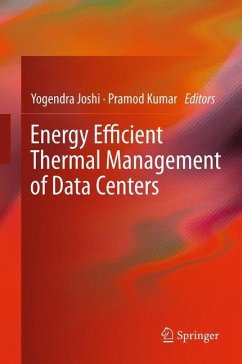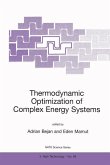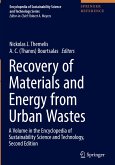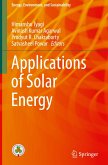Energy Efficient Thermal Management of Data Centers examines energy flow in today's data centers. Particular focus is given to the state-of-the-art thermal management and thermal design approaches now being implemented across the multiple length scales involved. The impact of future trends in information technology hardware, and emerging software paradigms such as cloud computing and virtualization, on thermal management are also addressed. The book explores computational and experimental characterization approaches for determining temperature and air flow patterns within data centers. Thermodynamic analyses using the second law to improve energy efficiency are introduced and used in proposing improvements in cooling methodologies. Reduced-order modeling and robust multi-objective design of next generation data centers are discussed.
Energy Efficient Thermal Management of Data Centers examines energy flow in today's data centers. Particular focus is given to the state-of-the-art thermal management approaches now being implemented across the globe. The future trends in computing hardware, as well as information and telecommunications technologies are examined, with their impacts on thermal management discussed. The book also explores computational and experimental characterization approaches for determining temperature and air flow patterns within data centers. Thermodynamic analyses using the second law to improve energy efficiency are introduced, and used in proposing improvements in cooling methodologies. A discussion of reduced-order modeling and robust multi-objective design of next generation data centers. Energy Efficient Thermal Management of Data Centers also features an introduction to real-time allocation of computing loads in virtualized environments and cloud computing. This is the ideal book for academic researchers working in thermal design, power delivery and cloud computing, as well as engineers working in critical facility design, cooling equipment and IT manufacturing.
Energy Efficient Thermal Management of Data Centers examines energy flow in today's data centers. Particular focus is given to the state-of-the-art thermal management approaches now being implemented across the globe. The future trends in computing hardware, as well as information and telecommunications technologies are examined, with their impacts on thermal management discussed. The book also explores computational and experimental characterization approaches for determining temperature and air flow patterns within data centers. Thermodynamic analyses using the second law to improve energy efficiency are introduced, and used in proposing improvements in cooling methodologies. A discussion of reduced-order modeling and robust multi-objective design of next generation data centers. Energy Efficient Thermal Management of Data Centers also features an introduction to real-time allocation of computing loads in virtualized environments and cloud computing. This is the ideal book for academic researchers working in thermal design, power delivery and cloud computing, as well as engineers working in critical facility design, cooling equipment and IT manufacturing.








